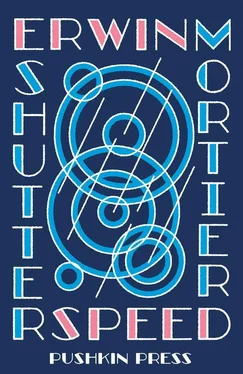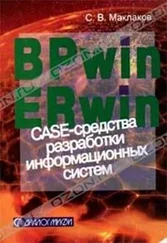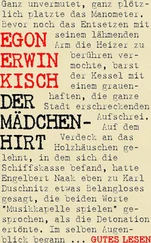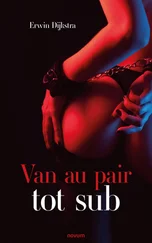I look straight into the camera, my face like a raised fist against the dark background of the portal. In the way I have quickly struck a pose, one foot slightly in front of the other, left hand on my hip and the right in my trouser pocket, I recognise the wish to resemble my father and fill his frame with my own.
I wanted to feel what he had felt, to feel it tingle in my own pores on the very same spot where he once posed for the camera, bathed in an equally summery sunshine which, over the years, turned his complexion sallow. He wore a similar blazer, only speckled. His shirt, tie and shoes look old and worn in the photo.
It was taken just after the war, so perhaps only the jacket was new.
At the post-Communion party I am the centre of attention: a grave-looking boy occupying the place of honour beneath the mantelpiece in the invariably stuffy front room. I am delivering the coup de grâce to the lamb-shaped frozen dessert, apparently oblivious to all those bored elbows propped on the table.
Displayed on the sideboard at my back is the candle Aunt Laura bought for me, inscribed with my name, Joris Alderweireldt, in gilt lettering beneath a Lamb of God holding a crucifix in its front paws.
Later, when the table has been cleared, I unwrap the parcel Uncle Werner deposited on the sideboard in the morning with a conspiratorial air, saying it was not to be opened until later. I do my best to look surprised and pleased as the wrapping paper parts to reveal a black case containing a hefty pair of binoculars, smelling of new.
There I am, reaching inside the case for a narrow envelope wedged in the bottom. I remember my heart leaping then sinking at the sight of the familiar hand, a neat copperplate with a hint of the schoolgirl disciplined by years of ruler-wielding nuns.
The heading would have been the usual ‘My darling boy’. Perhaps I was too young, perhaps not, to get a sense of the stiltedness, the hesitation before putting pen to paper, possibly even a smattering of guilt or remorse sweepingly glossed over by how much she missed being with me today, and did I like the Spanish stamps. Spain, land of tangerines and St Nicholas, who showed considerably less reluctance than her to board a boat or train.
Aunt leans back in her chair, giving one of the wry smiles she reserves for signalling disapproval. There is a hint of unease in the faces around her, whereas I look quite serene, and it is only now that I realise how much energy it cost me to hold up the letter, which was more like an oversized postcard, as if I am going to read it aloud.
Over the scene hangs a pall of silence, shot through with the painfully measured ticking of the mantel clock. Twenty minutes to three. Outside, the hens have settled in their dusty hollows, over in the churchyard the gravestones are blistering in the heat.
There is no one ‘from her side’, as Aunt used to call my mother’s relations. They must have lost touch over time. There are a few photos, not many, in which one of her brothers is to be seen: a man with a pointed moustache and dark glasses, his teeth bared in a forced smile that seems all the grimmer for the glint of gold fillings, while I blow out candles or skip around a Christmas tree.
He has her lean build, her long fingers, and a vulnerable agility which, here on this camping holiday on the moors, does not tally with how I remember him. I am sitting in the long grass at his feet playing with a bucket, while he looks out over the car towards the tent and the figure of a woman picking daisies on a rise farther off.
The various homes belonging to members of her family are intertwined in my memory to form a single labyrinthine building with a different season at each window. The straight-edged lawns, the well-trodden paths, the chicken runs edged with elder have all come together in one vast garden of secret walks and terraces shaded by spreading branches. Beyond the trees rise the house-tops, cool, stately, aloof, darkened with soot or rain, as if the brickwork were steeped in its own shadow.
My mother looms palely in dim interiors filled with massive furniture, a blond toddler at her knee, her brothers forming a defensive rampart around her. At the age of eighteen, in the company of some relatives — on her birthday, perhaps — there is no sign of the rebellious spirit she must have possessed for her to invoke her clan’s contempt by marrying beneath her. I see a young girl, frail and prim in a jacket and skirt, her hair up, blinking against the harsh afternoon sunshine as she poses among overblown peonies on a lawn, two pigeons like snowy napkins in the grass at her feet.
She stands among the tables laden with refreshments, partially obscured by summer hats, shoulders, politely smiling faces and hands arrested in mid-gesture, and chats with her friends — ladies in the making with handbags and summer gloves they would prefer to keep on when shaking hands with gentlemen. She is a Nachtergaele, a name that resonates in the village. There is no trace of the awkwardness I feel every time a camera is pointed at me, the same awkwardness as my father’s and which always makes me, like him, look like a photo within a photo hanging crookedly on a wall in the final moment before it shatters to pieces on the floor.
At a fairground dance she sails across the floor in the arms of one of her brothers. On another occasion she claps her hands for the boys’ sack race on the lawn. A fine-tuned mechanism of civilities and platitudes governs her gestures in these snapshots, tempering her response to jests by removing their sting.
On an outing, beneath the cherry blossom, surrounded by her beaming girlfriends, she winks coyly at the camera as she raises a foaming tankard to her lips. At the same instant a man at the next table — my father, as it turns out — beckons a waitress, leaning so far back that his head almost touches her ear. They seem utterly unaware of one another.
Somebody snapped the pair of them in a field of ripe corn, peering happily over the swollen ears. That summer the fathomless sky was a shade of blue that only the earliest colour photographs were able to record. Studio-enhanced, no doubt.
Later, they hold hands as they gaze over a mountain lake, two unassuming silhouettes standing at the edge of a glassy stretch of water encircled by steep cliffs and snow-capped peaks. He carries a rucksack, she leans on a walking stick. The light has an icy clarity, making them seem almost as transparent as the feathery clouds high over their heads, swirling around the mountain-tops.
One winter’s day he sits on his heels on a frosted football pitch, his arms around his mates’ shoulders. Judging by the twinkle in his eye it must have been her taking the picture. She seems to have had some trouble focusing the lens; perhaps the sight of him with tousled hair, unbuttoned shirt, and thighs glistening with post-match sweat made her head spin.
How he must have loved her wide skirts, her sleeveless blouses showing off her pretty arms. He lifts her over puddles, thresholds, ditches, just for the fun of encircling her small waist with his hands.
The long pigtail that tied her to her girlhood has suddenly gone. Her hair is short and bouncy, with curls flying in jubilation at their newfound freedom after so many years of constraint, or perhaps it was just that she thought the new hairstyle went well with the wedding band on her finger.
In a meadow on the outskirts of the village she sits on a rug under a greening willow, holding herself with the propriety she must have acquired through careful instruction. The slightly strained elegance of knees and ankles kept close together makes her look older than her years. Her hand reaches out to my father, from whose vantage I observe her now, showing him something, a blade of grass or a twig perhaps, and apparently speaking to him.
Читать дальше












